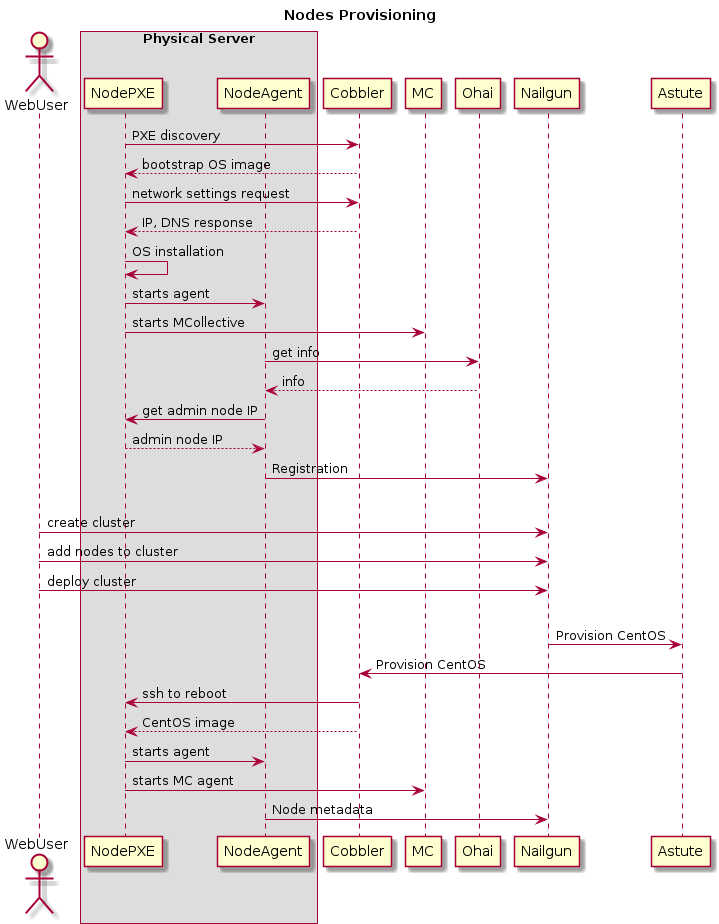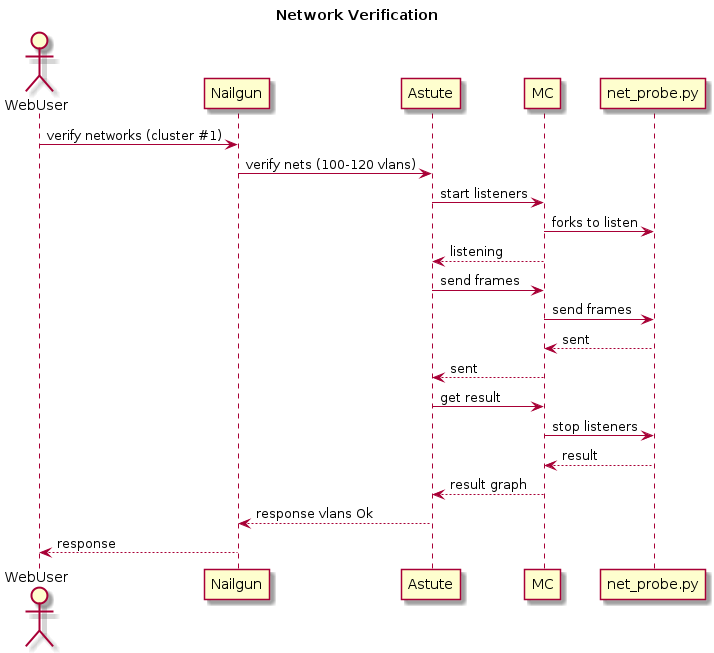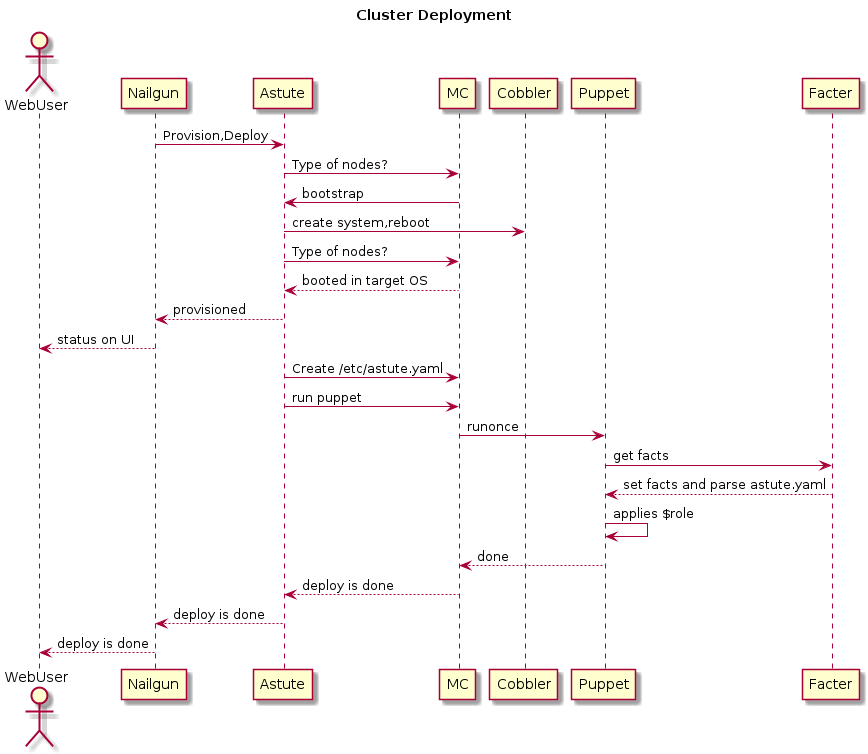Sequence Diagrams¶
OS Provisioning¶

Networks Verification¶

Details on Cluster Provisioning & Deployment (via Facter extension)¶

Once deploy and provisioning messages are accepted by Astute, provisioning method is called. Provisioning part creates system in Cobbler and calls reboot over Cobbler. Then Astute uses MCollective direct addressing mode to check if all required nodes are available, include puppet agent on them. If some nodes are not yet ready, Astute waits for a few seconds and tries to request again. When nodes are booted in target OS, Astute uses upload_file MCollective plugin to push data to a special file /etc/astute.yaml on the target system. Data include role and all other variables needed for deployment. Then, Astute calls puppetd MCollective plugin to start deployment. Puppet is started on nodes.
Accordingly, puppet agent starts its run. Modules contain facter extension, which runs before deployment. Extension reads data from /etc/astute.yaml placed by mcollective, and extends Facter data with it as a single fact, which is then parsed by parseyaml function to create $::fuel_settings data structure. This structure contains all variables as a single hash and supports embedding of other rich structures such as nodes hash or arrays. Case structure in running class chooses appropriate class to import, based on role and deployment_mode variables found in /etc/astute.yaml.

Except where otherwise noted, this document is licensed under Creative Commons Attribution 3.0 License. See all OpenStack Legal Documents.